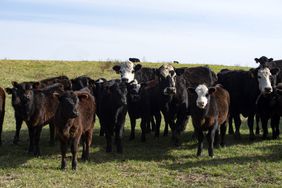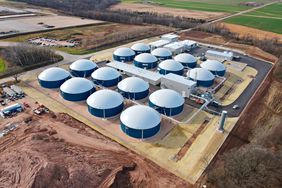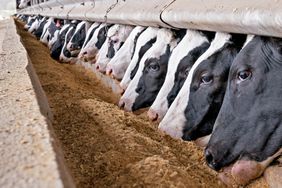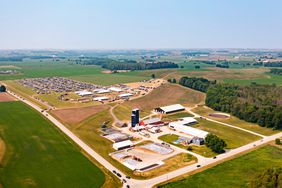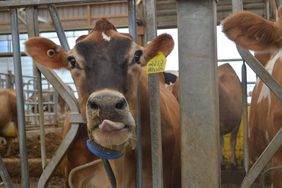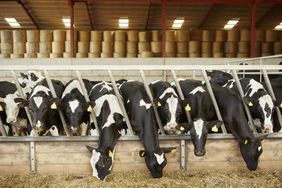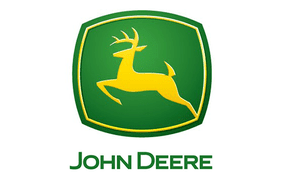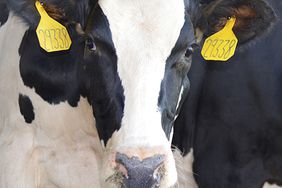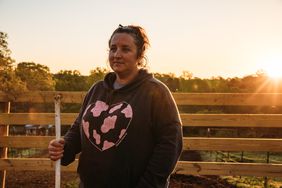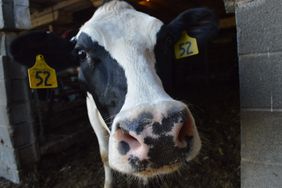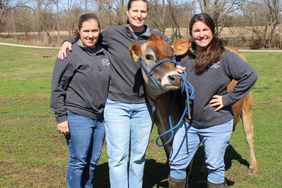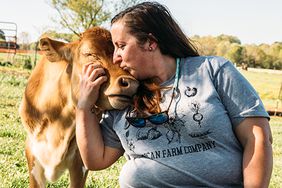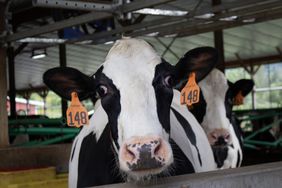:max_bytes(150000):strip_icc()/USED-A3-768x5655B15D-2-b058b889c28b43319af5d26582107666.jpg)
As in buying a car, buying a milking robot comes down to whether you want the brand-new version or one that costs less and has a lot of use left.
Steve Fried, director of customer solutions for Lely North America, says the market for used milking robots is starting to develop in the U.S. and is more mature in the Canadian market.
"About 16% to 20% of cows in Canada are milked using robots. That number is a lot smaller in the U.S. – about 2.5% – but it's continually growing," Fried says. "With the Canadian milk quota system, producers have a more secured source of revenue, allowing them to plan long-term investments with confidence. The U.S. market for milking robots is a little slower because of the current state of the dairy economy."
Fried says even with a slow dairy economy in the U.S., producers are continuing to add or are exploring the idea of adding robotic dairy systems, which has led to a search for their best options for adding the technology. Some producers are wanting to start with a used machine at a lower price point.
Challenges in Buying Used
The issue with some of the earliest robots, such as Lely's Astronaut A2, is finding parts for repairing a machine originally introduced 25 years ago.
"We've added four new models since the A2, so we've seen many robots traded in for the newer models," Fried says. "If producers are running older models and they are continually updating the software, they can run for a long time. It comes down to getting the needed parts if a breakdown occurs."
Certified Used
Since the introduction of the Lely Astronaut A5 in fall 2018, there has been a strong demand for trading up, which will make several used machines available.
"We want producers to be able to trade in their used machines and then provide a certified used program for other producers looking for a used robot, kind of like a certified used program employed in the auto industry," he says. "We have a program called Taurus in Europe and hope to have this available for our North American customers soon."
Machines with the Lely Taurus label only change hands after they have undergone a full revision and are updated with the latest technology. The reconditioned system includes the Lely T4C management system. A Taurus robot is configured to the needs and requirements of its new owner.
Lely envisions the North American program to recondition the system and allow customers to have options that could include an extended warranty.
"We want our Lely centers across North America to be involved in the trade-in process. This will allow for trading among these centers, and it gives dairy producers a good relationship with their service center," Fried says.
While age and condition impact value, so do supply and demand. Fried says he has heard of 10- to 15-year-old robots selling as is for 20% to 30% of their original value. Refurbished units that are younger with less milkings are bringing 50% to 60% of their original value.
Lely plans to unveil a used robot online trading platform in 2021. Fried expects the platform to be similar to a Kelley Blue Book-type program for used systems. Currently, Lely doesn't know what pricing will be on used robots.

